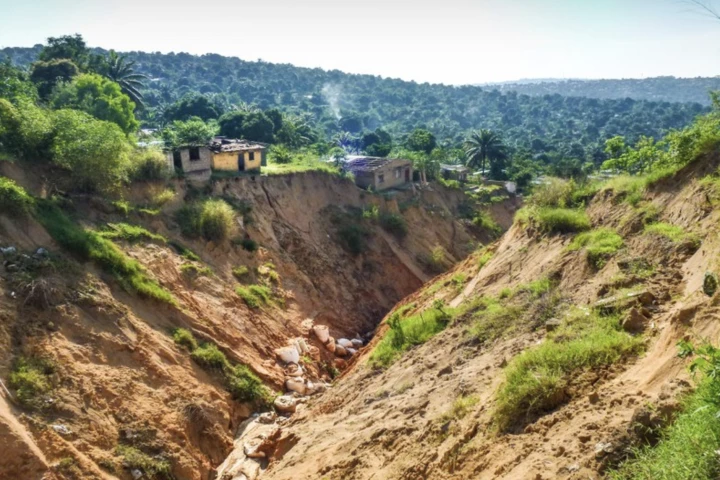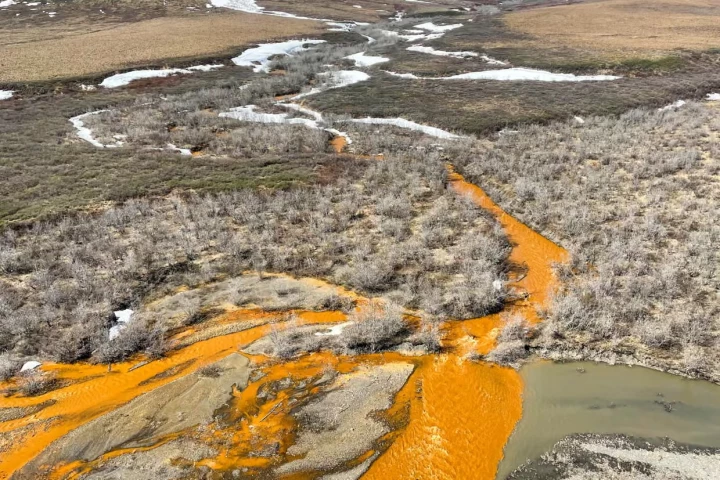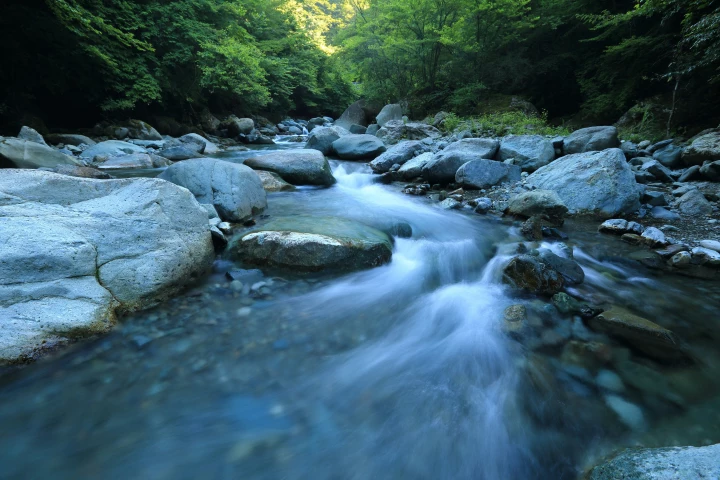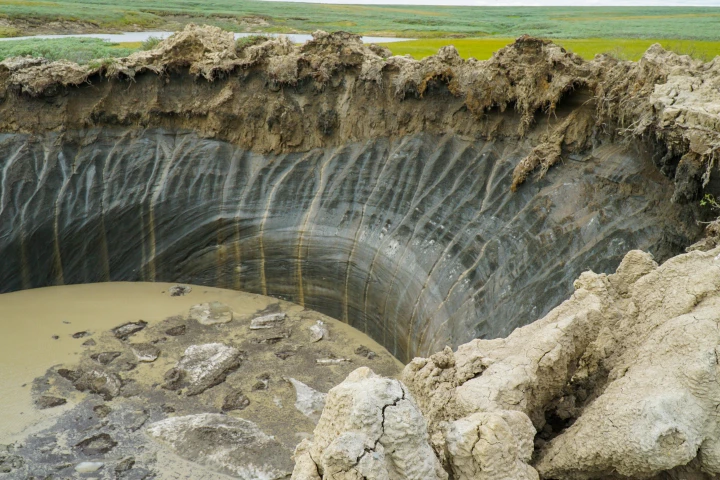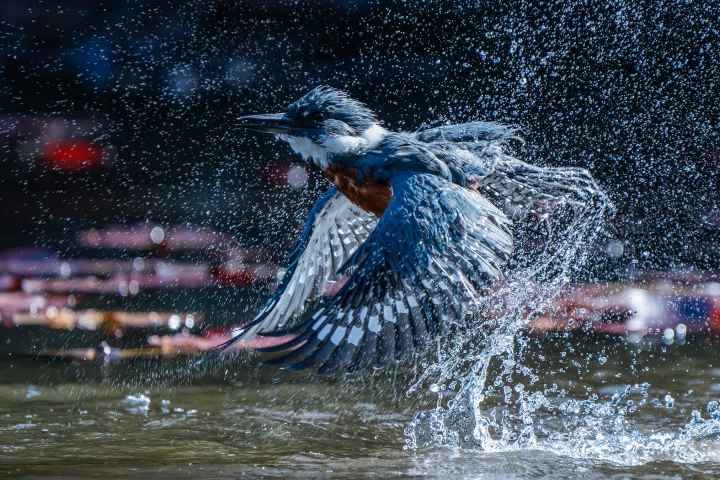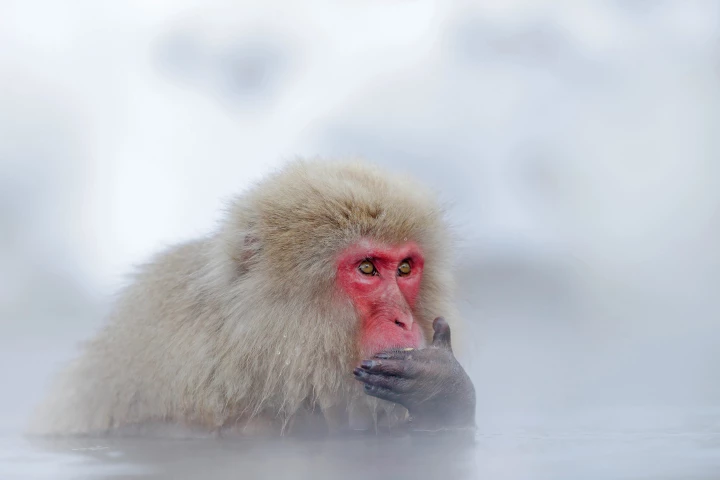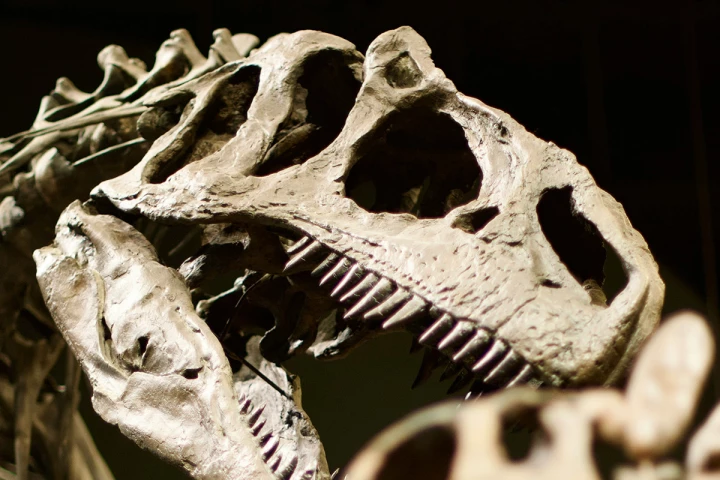Climate Crisis
-
A roof paint that can cool your home and pull fresh water straight out of the air? It's within reach, as scientists scale up production of a new kind of paint-like coating that shields roofing from the sun's rays and harvests dew from its surface.
-
Nearly 3,000 growing chasms have opened up in dozens of towns, swallowing up roads and houses in their path. Known as urban gullies, these destructive forces of nature are increasing rapidly and now threaten to displace more than 3.2 million people.
-
New research flips a long-held belief that frozen environments slow down chemical reactions and helps explain why Arctic rivers are turning orange. It turns out that ice is actually better than liquid water at releasing iron from common minerals.
-
A study examining nearly 1,500 river sites in the US between 1980 and 2022 has shown that river heatwaves are happening up to four times faster than air heatwaves and lasting nearly twice as long. The finding has major implications for aquatic life.
-
On the remote Yamal and Gydan peninsulas of western Siberia, the landscape is marked by massive craters that look as though the Earth has blown holes in itself. Now, 12 years after the first one was found, scientists say they know what's causing them.
-
The National Audubon Society has announced the winners of the 2025 Audubon Photography Awards. This year, budding photographers from Chile and Colombia have joined the competition, which also features a new category celebrating border-crossing birds.
-
Right now, groups of Icelanders are taking to the streets late at night, armed with cardboard boxes and torches, in search of the white bellies of baby puffins. This annual tradition has become one of the most fascinating rescue missions on the planet.
-
The North Atlantic has a new title as the global hotspot for hurricane clusters, with the likelihood of multi-storm events forming here increasing tenfold in 46 years. It's the first clear picture of how Earth's warming has shifted cluster patterns.
-
A groundbreaking study has traced the 66-million-year history of primates to overturn conventional thought that our ancestors came from tropical forests. The earliest members of our family tree, scientists say, were actually cold-climate survivors.
-
Researchers in Germany found fossilized dinosaur teeth can reveal what the air was like in prehistoric times. Humans might have found it hard to breathe if we were around back then, because CO2 levels were four times as high as the preindustrial era.
-
For centuries, glaciers have sat like frosty crowns atop slumbering volcanoes, keeping Earth’s fury tucked safely beneath layers of ice. But now, as climate change accelerates and glaciers retreat, the lid may be lifting, and the heat rising.
-
AI tools like ChatGPT have changed our personal and professional worlds, with around 52% of American adults regularly using a large language model. But at what cost? A new study details the large environmental price we're paying for our AI assistants.
Load More

